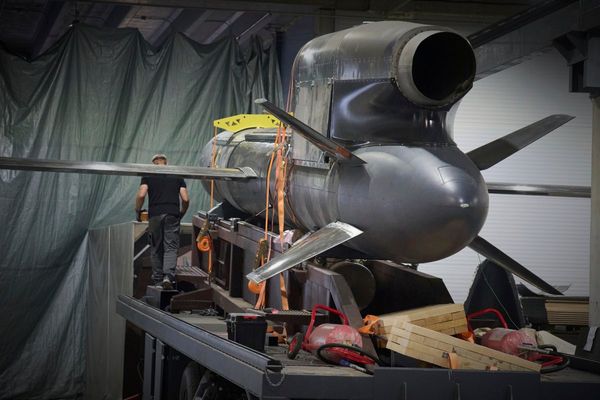
Named the 'forgotten generation' in today's job market, experienced workers aged 45-60 are caught between entry-level positions designed for recent graduates and senior executive roles requiring decades of leadership experience.
This demographic now faces the longest unemployment periods since the 2008 financial crisis, with many exhausting life savings whilst desperately seeking work.
Hilary Nordland, 53, epitomises this growing crisis. The former Minnesota marketing manager was made redundant in July 2024 during company-wide cuts affecting the healthcare sector.
'This market is a black hole,' admits Hilary, whose experience reflects a broader trend affecting mid-career professionals nationwide. 'Most positions I see are either entry-level or very senior, and I'm stuck in the middle.'
A Lifetime of Experience, No New Offers
Hilary held a mid‑level marketing contract role in the healthcare sector when company‑wide cuts hit last summer. Since then, she has attended more than 20 first-round interviews, but none have progressed beyond the initial stage. As told by Business Insider, she explains:
During the Great Resignation and ongoing economic shifts, mid‑career professionals like Hilary face a shrinking job market where they are often overlooked between young graduates and seasoned executives.
Cancelling Plans and Draining Retirement
With $20,000 (roughly £14,500) in retirement savings now depleted, Hilary has delayed her husband's medical procedure and struggled to care for their eight pets. She recounts skipping routine vet visits due to financial strain.
Her unemployment benefits expired months ago, adding pressure to find any form of income, despite her reluctance to take on underpaid or unrelated work.
Selling Plasma: A Desperate Option
To stay afloat, Hilary began donating plasma, typically earning $90 to $100 (around £66 to £73) per session for sitting in a chair for two to three hours. She balances this with a part-time job delivering pet food for a non-profit at $20 (approx. £15) an hour, yet says:
'Even combined with my husband's income, it's nowhere near enough money.'
Plasma donation has become a last-resort option for many adults, including once well-paid professionals, who face a cutthroat labour market and dwindling job security.
Middle‑Age, Middle‑Ground: Stuck in the Hiring Gap

Hilary's struggle highlights a growing dilemma for middle‑aged job seekers. She openly admits she's too experienced for entry-level positions but lacks the credentials or budget to compete at C‑suite levels.
'Age-inclusive policies and consistent engagement are essential,' notes an OECD survey. 'Mid-career and older workers are often underestimated, even though they match or exceed younger colleagues when given the chance.'
Psychological Toll and Retirement Now Uncertain
Beyond financial stress, Hilary faces emotional strain. She fears she's regressing, not progressing—and that early retirement is now out of reach. Plans for long-awaited holidays or even a modest retirement lifestyle have evaporated.
Loneliness and discouragement accompany her daily job search, made sharper by the silence of generic rejection emails and flat responses from potential employers.
How Common is This Crisis?
The Federal Reserve's 2023 report shows that only 34% of non-retired adults feel their retirement savings are on track, highlighting financial stress among older workers aged 50–64.
Another labour market analysis from Due notes that a growing number of former professionals in their 40s, 50s, and 60s are taking on gig work, passive-income roles, or odd jobs—much like Nordland's mix of plasma donations and part‑time gigs.
Why It Matters
Hilary Nordland's plight is a distressing sign that today's job market is failing those who once viewed steady employment as a mark of stability. With retirement plans unravelled and limited safety nets, middle-aged workers are being forced into survival mode.







